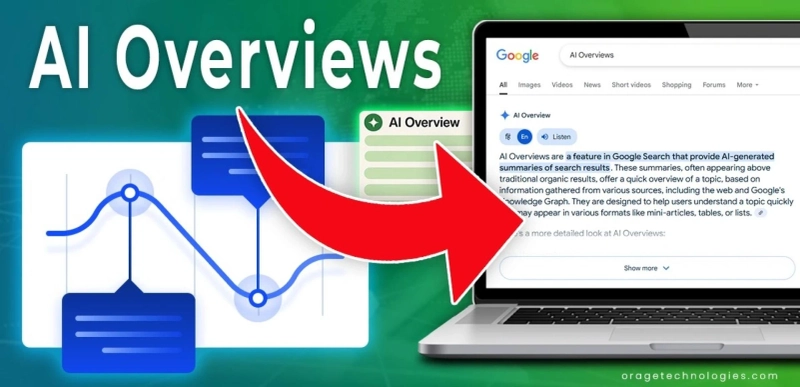How we search—and how search engines respond—has shifted dramatically in recent years. Google's Featured Snippets, the claimed height of quick responses, are now being complemented (and, in some cases, superseded) by AI overviews.
This change marks a new era in search, one powered not by algorithms but by artificial intelligence capable of producing nuanced, human-sounding responses. But how do AI summaries differ from featured snippets? What do these advancements mean for content creators, SEOs, and regular users?
Let us put it plainly and simply.
What Were Featured Snippets Meant to Accomplish?
Featured snippets were developed by Google to provide fast answers to queries, without needing a click. These "position zero" boxes tended to pop above all other search results, extracting a paragraph, list, or table from a web page that succinctly answered the query.
They were intended to:
- Enhance user experience by providing instant answers
- Increase visibility for optimally optimized content
- Incentivize publishers to format content in question-and-answer form
If your page ended up in a featured snippet, you might see a significant spike in organic traffic and authority. But the face of search was about to change once more.
Why Did Google Add AI Overviews?
With the advent of AI, users' expectations for more savvy, relevant search results increased as well. Individuals desire more than links—they desire answers.
Google launched AI summaries as part of its Search Generative Experience (SGE), which is designed to:
- Make the search more intuitive and useful
- Decrease the necessity for clicking on multiple sites to find information
- Keep users contained within the Google ecosystem
It's a reaction to trends such as voice search, AI chatbots, and zero-click behavior—all of which require more context and natural language answers than traditional search ever offered.
Are AI Overviews Replacing Featured Snippets?
Not quite—but they are evolving to assume many of the same roles. Featured snippets still occur, particularly for straightforward or fact-based questions like:
"What is the capital of Japan?"
"How many calories are there in an apple?"
But for more sophisticated, multi-layered, or imprecise queries, Google will instead display an AI summary. For example:
"Is strength training more effective than cardio for weight loss?"
"Best methods for stress management at work"
In such instances, the AI summary pulls from several reliable sources, summarizes, and points to relevant pages, making it easier for the user to have a comprehensive answer with minimal effort.
How Are Sources Selected for AI Overviews?
Google's AI does not select arbitrary sources. It uses a combination of:
- Content quality signals
- Relevance to the query
- Authority and trustworthiness
- Freshness of information
Pages with solid E-E-A-T (Experience, Expertise, Authoritativeness, and Trustworthiness) have a greater chance of inclusion. In contrast to featured snippets, which highlighted one fortunate page at a time, AI overviews highlight several pages, providing more visibility opportunities—but more competition as well.
Can Site Owners Optimize for AI Overviews?
Yes, but the strategy is slightly different from SEO. To better the chances your content is utilized in an AI overview:
Answer questions on point and briefly
- Use semantic-descriptive language, not keyword stuffing
- Include facts, examples, and expert opinion
- Organize content with formal headings and bullet points
- Make sure your content is current and supported by credible sources
The intention is to create helpful, human-centric content that AI can comfortably draw upon when creating summaries.
Do AI Overviews Influence Organic Traffic?
Yes—and not always positively. Because AI summaries can include the entire answer on the search results page, some users won't click through. This is part of the emerging zero-click search trend, in which users receive what they want straight from Google.
But there's subtlety:
- If your content is referenced within the AI summary, you can still get referral traffic.
- If your name or brand is mentioned in the summary, you are more visible and trustworthy.
- If you have a transactional niche (e.g., product reviews), you might be less impacted.
That being said, informational publishers and blogs are taking the heat most as users increasingly use AI to answer questions without ever leaving the Google realm.
What Are the Dangers of AI Summaries?
Convenient as they are, AI summaries are not without risk:
- Accuracy: On occasion, AI makes mistakes with facts or simplifies too much.
- Absence of Attribution: Even with link backs to sources, summaries might not capture the subtlety of original material.
- Loss of Traffic: As mentioned, fewer clicks can translate into less ad income and interaction for publishers.
- Less Control: Webmasters can't now opt out of inclusion in AI summaries.
For the time being, it's a question of evolving instead of pushing back. But arguments over content ownership, fair use, and SEO ethics are getting hotter.
How Should SEOs and Content Providers React?
The AI summary trend necessitates a mindset change:
- Prioritize depth over keyword stuffing
- Double down on building authority (original research, thought leadership)
- Evolve content forms for semantic comprehension
- Monitor performance via Google Search Console updates (SGE metrics could potentially grow wider)
- Diversify sources of traffic (email, social, direct) to cut Google dependence
In the end, content that brings actual human value—and not merely search engine chum—will have the strongest chance of survival in the AI-enriched environment.
What's Next for AI in Search?
Google's AI summary feature is continuing to develop. It's being rolled out and honed incrementally based on feedback and analytics. Plans include:
- More interactive features, such as follow-up questions
- Enhanced transparency, such as more explicit source attribution
- More robust accuracy controls to combat misinformation
- Integration with shopping, local, and video summaries
In short, search is more of a conversation—and less of a list of links. Whether you're a business owner or a content creator, understanding this trend is important.
Final Thoughts: Should We Welcome or Resist the Movement Away from Snippets to AI?
In digital search, only change is constant. The shift from highlighted snippets to AI summaries is indicative of Google's larger goal: give more answers, faster, and with a better user experience.
This creates hurdles, particularly for organic visitors, but it also raises expectations for content quality, trustworthiness, and distinctiveness.
Rather than opposing AI overviews, the ideal strategy is to comprehend, adapt, and evolve. Those who do will remain relevant as the search engine evolves into something smarter, more conversational, and unmistakably AI-powered.


